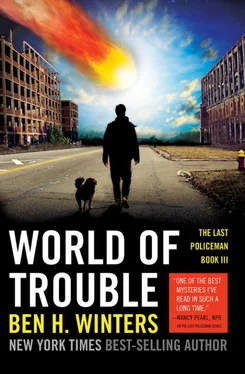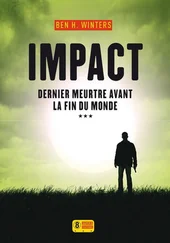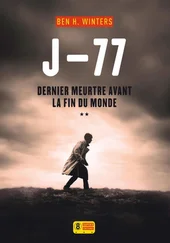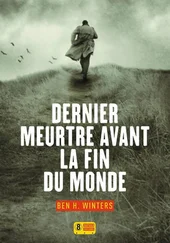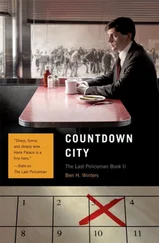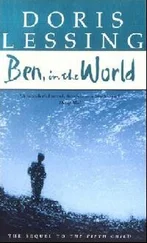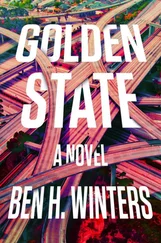“I did!” He looks at me, not angry but imploring. Desperate. Bereft. “I told her everything . That day in New Hampshire, out in Butler Field, waiting for the chopper to come and scoop her up, I told her that the whole thing was a set-up, that I was an FBI agent, that DeCarlo was a fraud and a psychopath. Capable of anything.” He chokes out the nickname. “Big Pharma. I showed her my fucking badge.” He trails off. “But…”
Damn it, Nico—damn it. “She didn’t believe you.”
Kessler nods, exhales. “It was too late. She was too deep into it. Into this fantasy world that I created my damn self. I said, you’ll believe me when Parry never shows up. I said, promise me, if he doesn’t show up in two weeks, you’ll steal this fucking helicopter and come back home. I said, promise me .” He is crying now, his face buried in his hands.
No way she promised. My sister has never promised anything.
“She never came back. I had to come. At a certain point, I just—I couldn’t stop thinking about her—try and find her. I couldn’t let her die out here—” and he says it, the exact words I was thinking ten minutes ago. “Couldn’t let her die out here for nothing.”
Neither one of us says what is obvious and true, that he was too late. That we were, both of us, too late.
Agent Kessler doesn’t actually look for evidence. He doesn’t take any prints. He just stares at the ground for a while, and then we turn around and slowly walk back together through the woods.
Now it’s my turn. I’ve got his story and now Agent Kessler wants mine.
We make our way back through the woods from the crime scene to the police station, stepping over brambles and then across the rope bridge, grunting with the exertion, two twentysomethings hamstrung by multiple injuries, walking slowly through the woods like old, old men. While we walk I run down the investigation in progress, piece by piece: I tell him about finding Jean in the woods, about the subsequent discovery of Nico’s body, bearing a similar injury, similar in kind but not degree; I tell him about my eyewitness to Nico’s argument with Astronaut an hour before her death. I talk and talk, and he interrupts on occasion with insightful or clarifying questions, and we fall into my old favorite rhythm of conversational police work—the laying out of a fact pattern, the straightening out of details in my own mind so they can be vetted by a fellow officer.
When we are back at the police station Kessler stops in Dispatch to examine Nico’s body while I go back to the garage and walk slowly around the cratered wreck at the center of the floor. It looks like Cortez took the time to fill up the stairwell with as much rock as he could—all the stones that resulted from smashing out the wedge, plus more big chunks he jackhammered out from all over the garage floor. It’s rutted and cratered in here, like the surface of the moon. At the edge of the pit is a loose end of rope, snaking out from the pile of rubble. I can picture my erstwhile sidekick after he left me in the jail cell: loading up the tarp with stones, pulling it down in his wake, collapsing the tunnel mouth behind him like the Red Sea crashing down behind Moses.
Cortez, putting up a KEEP OUT sign; Cortez, taking over the lease.
“No way on the suicide,” says Kessler abruptly, coming into the room.
“What?”
He clears his throat. “The rest of them, sure. For the rest of them, I like it. They give up on Parry, maybe they realize they got punked. Maybe they even realize DeCarlo is a psycho. Life postimpact is going to be brutish and short. Bunker or no bunker. Poison becomes the good option.”
Kessler’s manner on all this is staccato, clipped, just the facts. He’s doing exactly what I did after looking at what he was just looking at: Nico’s frozen face, the red and black wreck of her throat. He’s wrapping up the pain of that in CAUTION tape, drowning it out in crime-stopper rhythms. I like it. I find it soothing.
“But Astronaut? No,” he continues, shaking his head. “No way.”
“You said he was a maniac,” I say. “You told me: capable of anything.”
“Right. But not that. Capable of talking other people into suicide, yes, but not himself. He’s a world-class narcissist. Delusions of grandeur on an astronomical scale. Suicide doesn’t fit the profile.”
“It’s a different world.”
“Not that different.”
“But I—” I glance down into the rubble pile. “I saw him. A middle-aged man with bushy black hair, horn-rim glasses, dark brown eyes.”
Kessler scowls. “Where did you get that description?”
“Miller.”
“Who?”
“This Amish guy. My witness. Was there another man in the group who might have matched that description?”
“Not likely,” says Kessler. “Possible. We did our best to keep track, but people drifted in and drifted out. All I know is, in no scenario is Anthony DeCarlo a suicide.”
I turn back to the rubble-choked stairhead. The idea of this, of my having made a wrong ID down there, of the man who killed my sister still being alive—it flickers in me like a pilot light. I bend down without thinking about it and roll an oblong stone from the top of the pile, and then another one.
“So you think he’s down there?” I say to Kessler.
“Oh, I certainly hope so.” He comes over and gets down on a knee to help me, grunting and lifting a stone. “Because I would very much like to kill him.”
* * *
While Agent Kessler and I dig out the rubble from the stairhead, while we pull out boulders one by one and the muscle ache gathers in my shoulders and in my back, my mind flies out from my body and circles the globe, zooming over distant landscapes like a ghost in a fairy tale, wandering the world. Everywhere there are people praying, people reading to their children, people raising toasts or making love, desperately seeking pleasure or satisfaction in the last tissue-thin hours of existence. And here I am, here’s Palace, knee-deep in a pit of stone beside a stranger, digging and digging, tunneling forward blindly like a mole into the next thing that comes.
When the path is clear we go down, the narrow metal stairwell shaking under us as it did before, me first and then Agent Kessler.
In the basement corridor I flick on the Eveready and shine it into the corners and everything is as it was: darkness and silence and cold. Concrete floor, concrete walls, weird chemical stink.
Kessler stumbles on something, sending pebbles scuttling and rolling. I turn and gesture for him to be silent, and he scowls and gestures for me to be silent—a pair of bedraggled law-enforcement professionals pulling rank on each other in a darkroom dumbshow.
I sniff the air. It’s the same, everything is the same down here, but it’s not the same; it feels different. The air has been unsettled somehow. The same darkness, with new shadows in it.
We move past the tiny furnace room and shine our flashlights over the three doors: ladies’ room, general store, and then the door with the graffiti.
“The bodies?” says Agent Kessler. “Palace?”
“One sec,” I murmur, my eyes fixed on the door of the general store, which is open, open at an angle of about twenty-five degrees. It’s propped open, as a matter of fact, held in place by an empty box of macaroni and cheese, folded over into a wedge. I step toward the door, my gun raised. Cortez told me his intentions in no uncertain terms: to stay in that room for six months after boomsday before creeping out to assay the outside world. And yet there’s the door, held purposefully ajar. The question is why, the question is always why.
“Cortez?” I say, letting my voice travel down toward the door. I step toward it. “Hey, Cortez?”
Читать дальше
